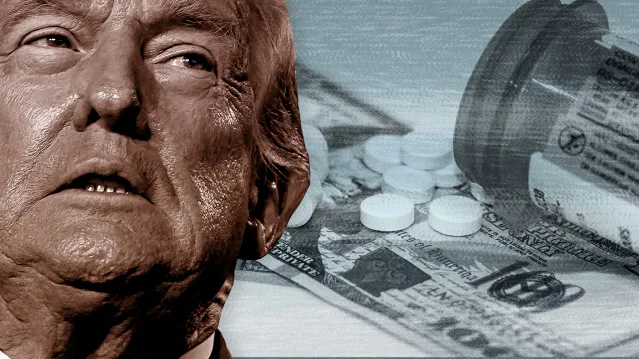An effort by President Trump's administration to curb advertising for pharmaceutical drugs on television is posing creating a potential marketing hurdle for some of the country's largest drugmakers while threatening a key revenue stream for media companies.
Advertising and pharmaceutical industry experts say an executive order Trump signed this week could pose an existential threat to the business model of both drugmakers and the media companies which raked in an estimated $5 billion in advertising revenue from pharmaceutical companies in 2024.
The order instructs the Department of Health and Human Services to ensure "transparency and accuracy" in direct-to-consumer advertising, including requiring greater disclosures of side effects in television and other ads.
The order stops short of directing an outright ban on drug advertisements, though HHS Secretary Robert F. Kennedy Jr. has called for a wholesale end to direct-to-consumer advertising for prescription drugs.
"This is a shot across the bow from the administration telling these companies we're watching you, get your act together or we're going to come after you," said Robin Feldman, an expert in health law and a professor at the University of California. "The tone of the message matters as much as the language here."
The administration has sent firm cease and desist letters to some of the country's largest drug manufacturers in recent says, warning scrutiny of the content in its advertisements is part of a broader push to combat "egregious violations demonstrating harm" in the marketing of high-cost prescription drugs.
The action is seen as an about-face from previous administrations, which thanks to a powerful healthcare lobby loosened restrictions on how drug makers market and sell their products, leading to a boom in Big Pharma ads on television in recent decades.
Chris Meekins, a healthcare lobbyist in Washington, in a memo to clients this week obtained by The Hill sought to provide assurances.
Meekins wrote that although Trump "does not have authority to outright ban pharmaceutical advertising, his administration seems to be trying to make it death by disclosure and rulemaking."
"Whether it can survive legal challenges is very much an open question," he added.
But Meekins suggested companies will have to closely consider whether they want to challenge Trump on the matter.
"Do you sue and risk the Trump administration's wrath?" Meekins asked. "If a company sues over this, they could become a target of greater focus related to most favored nations actions and in Medicare drug negotiation (if they have a drug selected). No company wants to be the next Harvard."
Regardless of those consequences, some sources said some company is likely to challenge the order in court.
"One of these companies is in all likelihood going to sue over this," predicted Roy Gutterman, director of the Syracuse University Newhouse School's Tully Center for Free Speech. "But commercial speech is protected, less so than political speech, which means the government can enforce reasonable regulations to support an important government interest ... and public health is a reasonable government interest."
White House officials have insisted they are not interested in pursuing an outright ban on direct-to-consumer drug ads but are instead interested in greater transparency and a more informed public on medicine and its side effects.
"Our goal is not to see a certain numeric reduction in ads," a senior administration official told reporters during a background call this week. "Our goal is to ensure that patients have proper information about drugs that have potential harms, and it's to rebuild public trust."
There could be major downstream impacts for media companies of drug manufacturers either spending less on advertising or placing greater scrutiny on how a drug commercial gets made.
Many of the nation's leading newscasts and daytime cable news shows feature wall-to-wall ads for drugs to combat conditions ranging from obesity to eczema and crones' disease.
Advertising executives and broadcast television insiders meanwhile warn big pharma ads are a key underpinning for the industry's increasingly shaky financial foundation.
The Trump administration's scrutiny of Big Pharma, these people say, comes at a time of widespread uncertainty over the financial future of linear broadcast channels and news providers.
"Big pharma plays a big role in supporting the news we see on TV," Gutterman said. "There are copywriters and cinematographers and a whole segment of media professionals who risk being cut back if these ad budgets tighten or the drug companies try to market their product by other means."
Others say a more honest advertising strategy by some of the nation's largest drug makers would be a welcome development in the interest of public health.
"It's very hard to present a complete nuanced picture of a drugs benefits and risks in a 30 second TV spot at the same time you're also trying to make it entertaining and consumable for a mass audience," said Aaron Kesselheim, a professor of medicine at Harvard Medical School and an expert in Pharmacoepidemiology.
"Drug ads aren't a good way to inform people about their options, but they are very prevalent so I can understand if some people feel tired of them."
